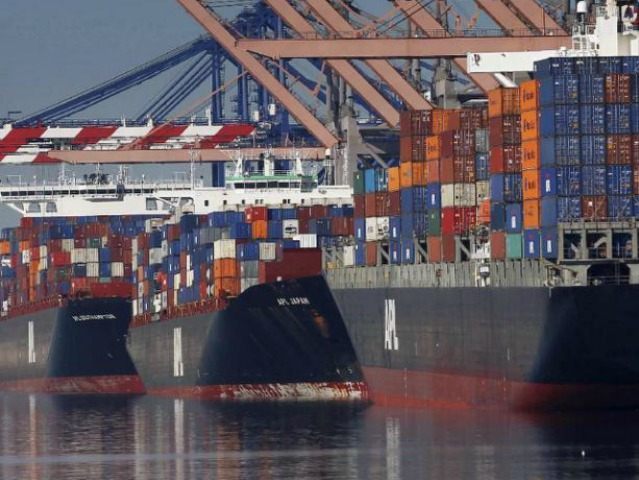Several ex-national security leaders have joined forces to argue that pushing through President Barack Obama’s trade agenda is good for national security—even though it would hurt American manufacturing, could increase the already-record-high trade deficit and likely add to the national debt.
Several former Secretaries of Defense, including Donald Rumsfeld, Leon Panetta, Chuck Hagel, Robert Gates, William Cohen, Harold Brown and William Perry, joined with an impressive list of several other national security leaders including ex-CIA director Gen. David Petraeus, former Secretary of State Colin Powell, and several others to make their case.
“We write to express our strongest possible support for the enactment of Trade Promotion Authority legislation, which is critical to the successful conclusion of two vital trade agreements: the Trans Pacific Partnership (TPP) and the Transatlantic Trade and Investment Partnership (TTIP),” they wrote to House Speaker John Boehner, Minority Leader Nancy Pelosi, Senate Majority Leader Mitch McConnell, and Minority Leader Harry Reid. “While the economic benefits of both these agreements would be substantial, as former Secretaries of Defense and military leaders we believe there is an equally compelling strategic rationale for TPP and TTIP.”
They argue there is a national security interest for the Trade Promotion Authority (TPA) deal that would set up the highly secretive Trans-Pacific Partnership (TPP) deal and the similar Transatlantic deal.
“First and foremost, the conclusion of these agreements would be a powerful symbol of continued U.S. leadership and engagement globally,” they wrote.
They would reinforce relationships with important allies and partners in critical regions of the world. By binding us closer together with Japan, Vietnam, Malaysia and Australia, among others, TPP would strengthen existing and emerging security relationships in the Asia-Pacific, and reassure the region of America’s long-term staying power. In Europe, TTIP would reinvigorate the transatlantic partnership and send an equally strong signal about the commitment of the United States to our European allies.”
They added that passing TPP and the Transatlantic deal “would also draw in other nations and encourage them to undertake political and economic reforms.
The result will be deeper regional economic integration, increased political cooperation, and ultimately greater stability in the two regions of the world that will have the greatest long-term impact on U.S. prosperity and security.
Indeed, TPP in particular will shape an economic dynamic over the next several decades that will link the United States with one of the world’s most vibrant and dynamic regions. If, however, we fail to move forward with TPP, Asian economies will almost certainly develop along a China- centric model. In fact, China is already pursuing an alternative regional free trade initiative. TPP, combined with T-TIP, would allow the United States and our closest allies to help shape the rules and standards for global trade.
There is one major notable former national security leader who clearly chose not to sign this letter: now retired chairman of the Joint Chiefs of Staff Admiral Mike Mullen. Mullen said many times before he retired as chairman of the Joint Chiefs of Staff that the biggest threat to America’s national security is the national debt—which these trade deals could increase.
“I’ve said many times that I believe the single, biggest threat to our national security is our debt, so I also believe we have every responsibility to help eliminate that threat,” Mullen told business leaders on Sept. 22, 2011, for instance. “We must, and will, do our part.”
Now leading members of the national security community seem to be going against Mullen’s call for responsible spending.
It’s also worth noting, too, that this letter from national security leaders was promoted by House Ways and Means Committee chairman Rep. Paul Ryan (R-WI)—the GOP establishment figure who has become the face of this trade agreement.
Despite the fact Ryan has misled his colleagues many times on issues of importance—like his budget deal with Sen. Patty Murray (D-WA) last Congress or the doc fix this Congress or many times on immigration—GOP leadership in both Houses has clearly handed the keys to the car for the Republican Party’s future to Ryan. Last time Ryan had the keys to the GOP car, he crashed it—losing the 2012 presidential election with his running mate presidential nominee Mitt Romney.
As Breitbart News reported previously, even the GOP establishment’s own polling data shows the American people don’t want the Obama trade deal that Ryan is quarterbacking–so instead of doing what voters sent them to Washington to do, under Ryan’s tutelage, they’ve decided to cook up a whole bunch of phony poll-tested talking points to try to sell the deal just enough to get it passed.

COMMENTS
Please let us know if you're having issues with commenting.